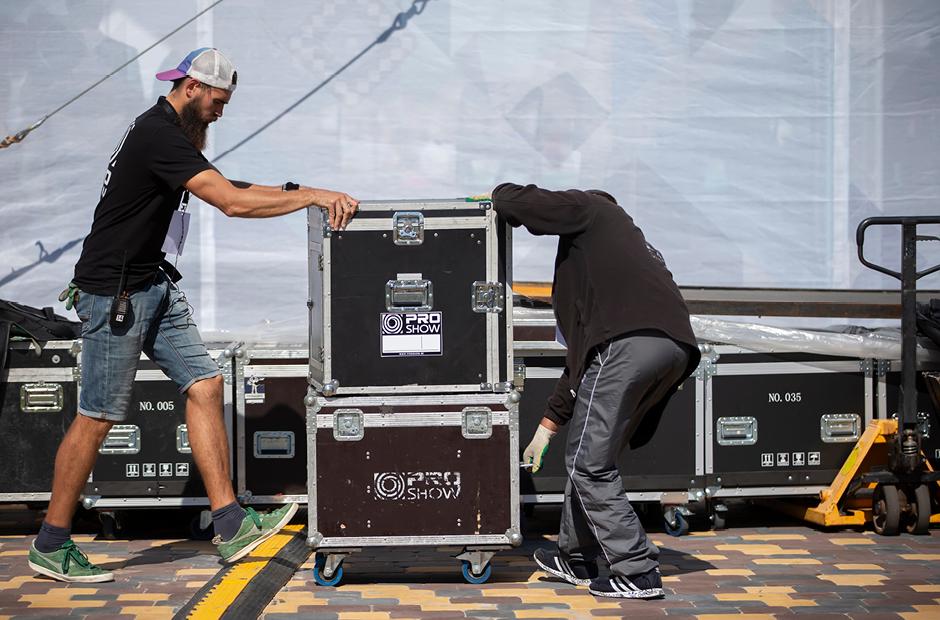Commercial Music
The Commercial Music program at Long Beach City College provides students with hands-on experience for careers in music production, sound engineering, entertainment management, recording, promotional and commercial videos, and reality programming, or any other form of music production you can imagine. Whether it be for a recording studio, record label, media/management company, or independent/contract work in the field of music, you can learn it all through courses in the Commercial Music program from experienced industry professionals, using state-of-the-art equipment.
(Program Video: LBCC Career Technical Education, Commercial Music)
DEGREES & CERTIFICATES
Commercial Music, Certificate of Achievement (C-ACH)
View all LBCC’s Programs of Study and Curriculum Guides
(New students need to refer to the current academic year for the most up-to-date info)
| Receiving a Degree/Certificate | Class Schedule | Make an Appointment |
COURSE OFFERINGS
View courses offered in different semesters to assist in academic planning.
| Course Name | Fall | Winter | Spring | Summer |
|---|---|---|---|---|
|
MUS 6 |
||||
|
CMUS 200 |
||||
|
CMUS 210 |
||||
|
CMUS 220 |
||||
|
CMUS 230 |
||||
|
CMUS 240 |
||||
|
CMUS 250 |
||||
|
CMUS 231 |
View Course Descriptions on LBCC College Catalog.
CAREER INFO
Study the fundamental skills of signal flow, live sound, and recording in combination with your specific music career interests. The Certificate of Achievement will prepare students for entry-level positions with a broad field of commercial music skills. Elective courses should reflect your area of specialization.
POTENTIAL JOBS
- Artist/Entertainer
- Audio Engineer
- Mixing/Mastering Engineer
- Music Composer/Arranger
- Music Copyist
- Music Director (MD)
- Music Producer
- Recording Engineer
- Songwriter
- Sound Designer
- Stage Technician
- Studio Musician
- Tour/Business Manager
To explore potential jobs in this field of study, we strongly urge you to visit LBCC Career Center. Working with a career counselor, we will assess your strengths, skills, interests, and accomplishments to help you identify internship opportunities and career goals that match your educational and professional needs.
FAQ
What is Commercial Music?
Commercial music encompasses all music adjacent careers in music, including management, audio technicians, songwriters, producers, engineers, etc. For a fuller list, see the “Career Info” tab.
How long does it take to complete the Commercial Music Certificate?
The course offerings/rotation are designed for students to complete the certificate in one academic year (fall/spring semesters) as full-time students.
Part-time students can still work through the required courses – commercial music welcomes all kinds of students.
Can I attend NAMM as a Commercial Music student?
Yes! LBCC workforce development funds are set aside to get students into the biggest music industry conference, which happens to be right in our backyard.
Can I transfer to other Commercial Music Schools with the Commercial Music Certificate?
There is currently no transferable AA-T in Commercial Music across the state of California. For this reason, we designed the certificate with the intention of developing skill sets, so students can move directly into the industry. Though there are commercial music programs at four-year schools, the certificate as a whole is non-transferable. College/university programs can decide which courses are/aren’t transferable.
Do LBCC graduates find work in the media industry after they graduate?
Yes! We have many alumni working in various capacities in the Music/Entertainment/Media Industries. Local examples include multiple musicians and engineers in movie/television soundtracks, music events/venues, and theme parks. These jobs are in entertainment, movies, television, streaming sites, and just about any place where you hear live and/or recorded music.


